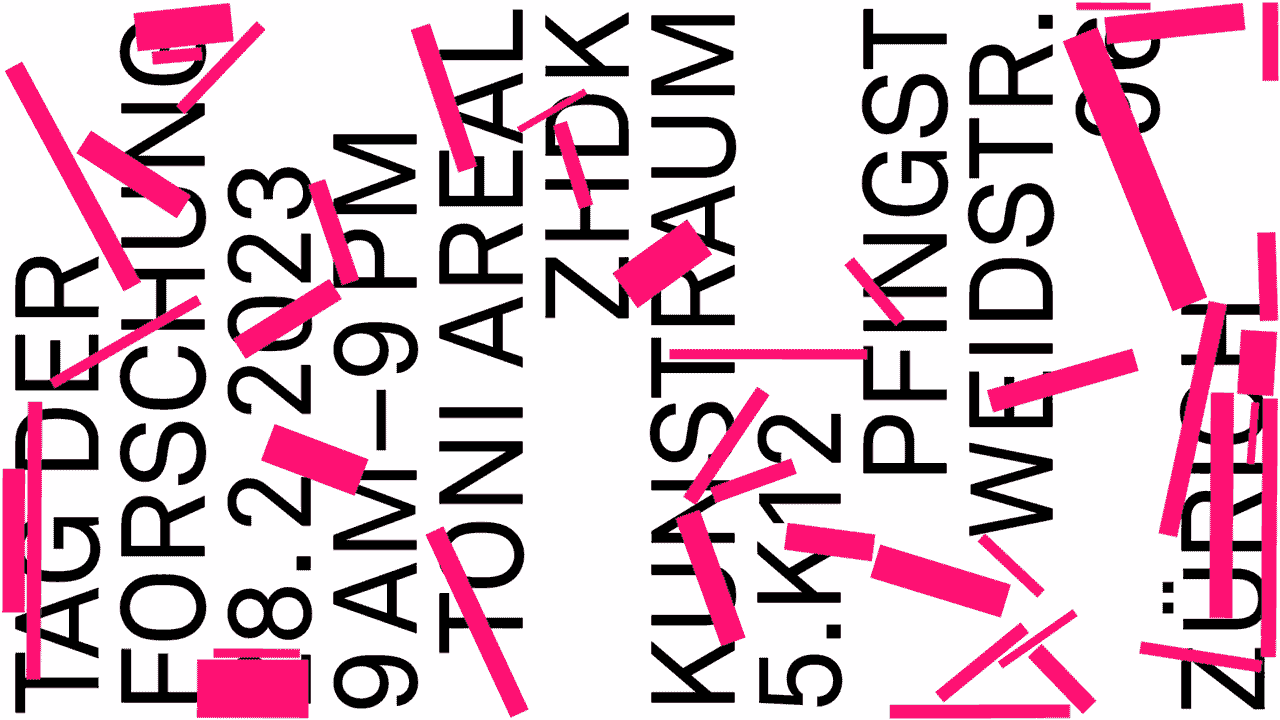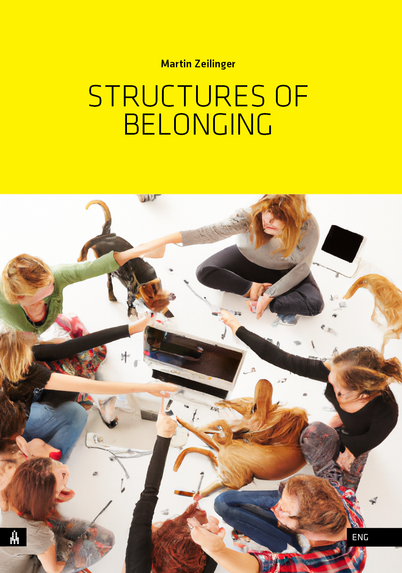28.02. Research Day (Zurich)
27 February, 2023 - 17:28 by felix
I will present the research project "Latent Spaces. Performing Ambiguous Data" as part of the Research Day at the Zurich University of Arts.

I will present the research project "Latent Spaces. Performing Ambiguous Data" as part of the Research Day at the Zurich University of Arts.
 /rosa
/rosa
Rosa-Luxemburg-Str. 35, 10178 Berlin
➠ Friday, 3 February 2023 at 17:00
➠ Presentation of the new issue of PostScriptUM: Structures of Belonging by Martin Zeilinger
· Martin Zeilinger in conversation with Penny Raffery
· introduction by Felix Stalder
This conference brings together artists, hackers and researchers to critically examine the shift in digital culture from open sharing to crypto-based forms of ownership. Is this the ultimate triumph of financialisation, or are there openings for different property regimes and thus new forms of art and culture?
I'm one of the editors of the conference and the book with the same name we will be launching as well.
From COMMONS to NFTs warm-up event! Join the online conversation about NFTs after the hype with@stalfel #RuthCatlow @furtherfield & @jonas_lunda on Oct, 25, 8PM, CET at https://twitter.com/i/spaces/1ynJOavrLaXKR
Es freut mich sehr, den Eröffnungsvortrag zur Ringvorlesung zu halten, die gemeinsam von der Hochschule für Grafik und Buchkunst, Hochschule für Musik und Theater, Hochschule für Wirtschaft, Technik und Kultur und Universität Leipzig veranstaltet wird.

Happy and proud to participate with a work "Infrastructure of a migratory bird" (co-authored with Vladan Joler and Gordan Savičić) in this show!
CAN YOU SEE ME NOW?
Practices of Tracking, Control, and Resistance
________________________________________________________
with the artists Jeremy Bailey, Adam Harvey, Vladan Joler, Lauren Lee McCarthy, Joana Moll, RYBN.ORG, Gordan Savičić, Felix Stalder, Simon Weckert
Opening: Friday, October 7 2022 18:00
@ WE ARE AIA, Zürich, Switzerland
October 8, 2022 – January 31, 2023
________________________________________________________
Where surveillance technologies used to be a specialized part of urban public space mostly aimed at crime prevention and investigation, today surveillance in the form of automated data collection and analysis has become an essential part of contemporary infrastructure — from smart phones to social media, smart home devices, and beyond. Nowadays, surveillance is both hidden and pervasive in its structure and operation. It surrounds us as an “invisible infrastructure” that tracks us and allows our devices to show us content tailored to “our” interests and respond to “our” desires.
But to what extent is mass observation and data access acceptable? Where is the fine line between new technological advances making our life easier—whether it is physical or virtual—and becoming manipulative?
Can You See Me Now? illuminates a variety of artistic and social tactics that address these questions and explore the shift from surveillance as technology to surveillance as infrastructure. The artists focus on making surveillance infrastructures visible by “performing” the technologies in unintentional, experimental ways. Visitors are able to discover new modes of interaction with the technology as well as possibilities to intervene in the systems beyond the aesthetic experience.
Eröffnungsvortrag zur Konferenz "Offen, kollaborativ und digital – wie gemeinsam(e) Ressourcen in der Kultur und Wissenschaft geschaffen werden", der Hamburg Open Online University (HOOU).
Das Digitale als Raum, Kultur als Konvivialität
Oftmals verstehen wir das Digitale als das, was sich am Bildschirm manifestiert, als Bilder, Texte, Videos und Daten angeordnet in Listen, Feeds, oder Hyperlinks, abrufbar in ständig sich wandelnden Konfigurationen.
scobel - Kulturtechniken im Umbruch
Lesen, Schreiben, Rechnen sind elementare Kulturtechniken für die Gestaltung von komplexen Gesellschaften. Werden jetzt auch digitale Kompetenzen für Kommunikation und Teilhabe benötigt?
Mit Sybille Krämer, Dirk Becker und Felix Stalder
Produktionsland und -jahr:
ZDF, Deutschland 2022
DATUM: 08.09.2022
DAUER: 56 min
https://www.3sat.de/wissen/scobel/scobel---kulturtechniken-im-umbruch-10...
Giving the keynote lecture (in person!) at the "New visual narratives" conference 1-3 July, Lodz + online.
Immersion as Escapism, Control or Coexistence
01-07-2022 10:30:00